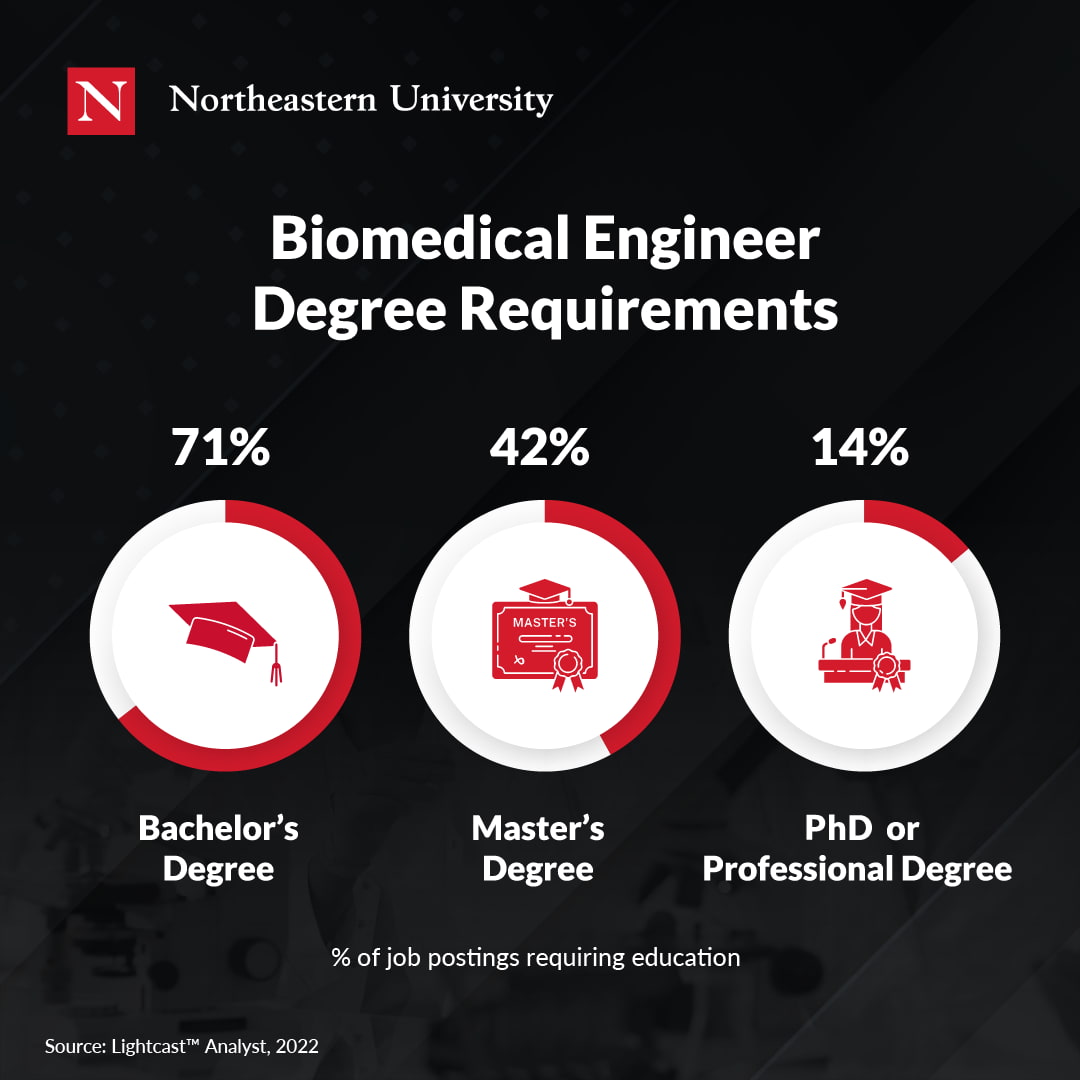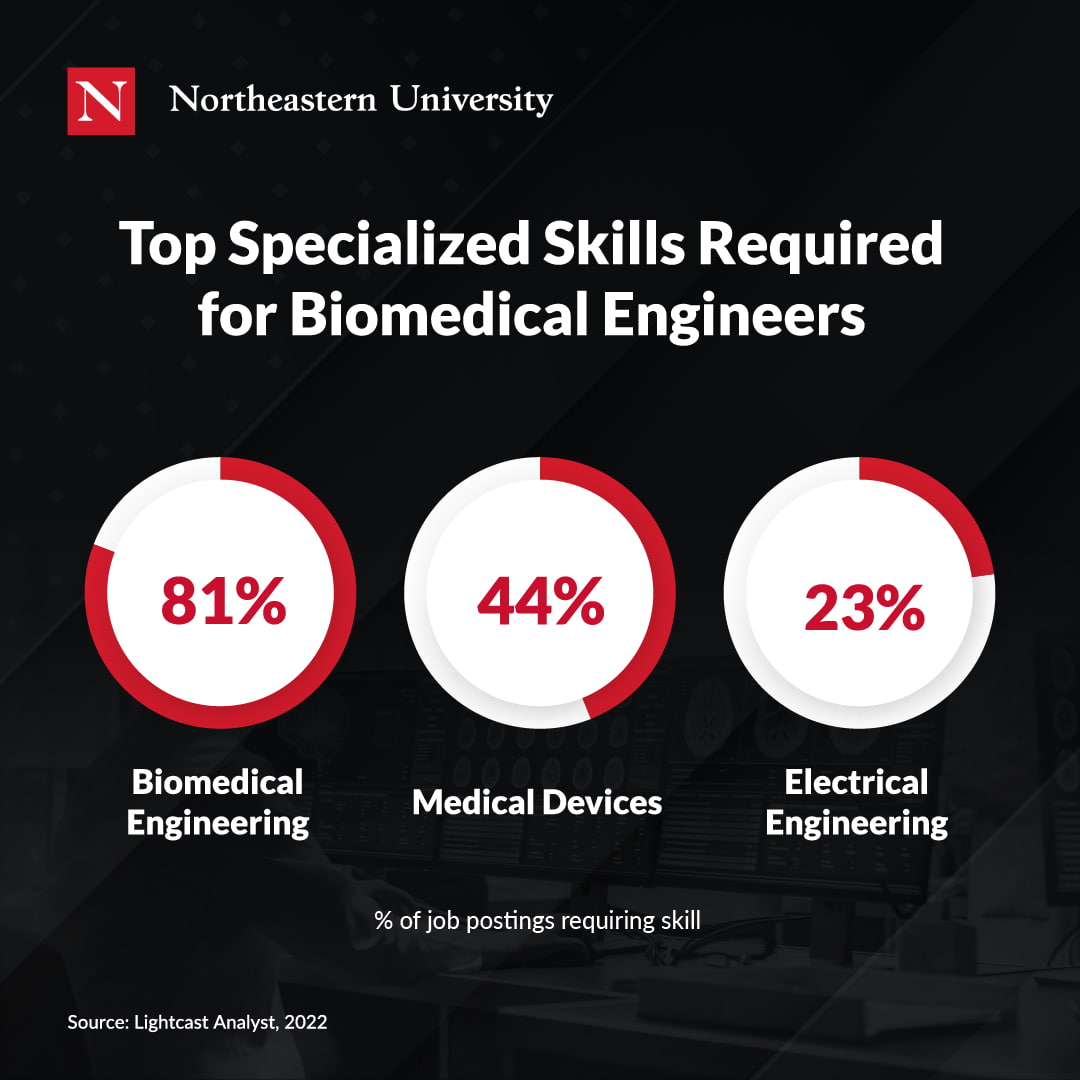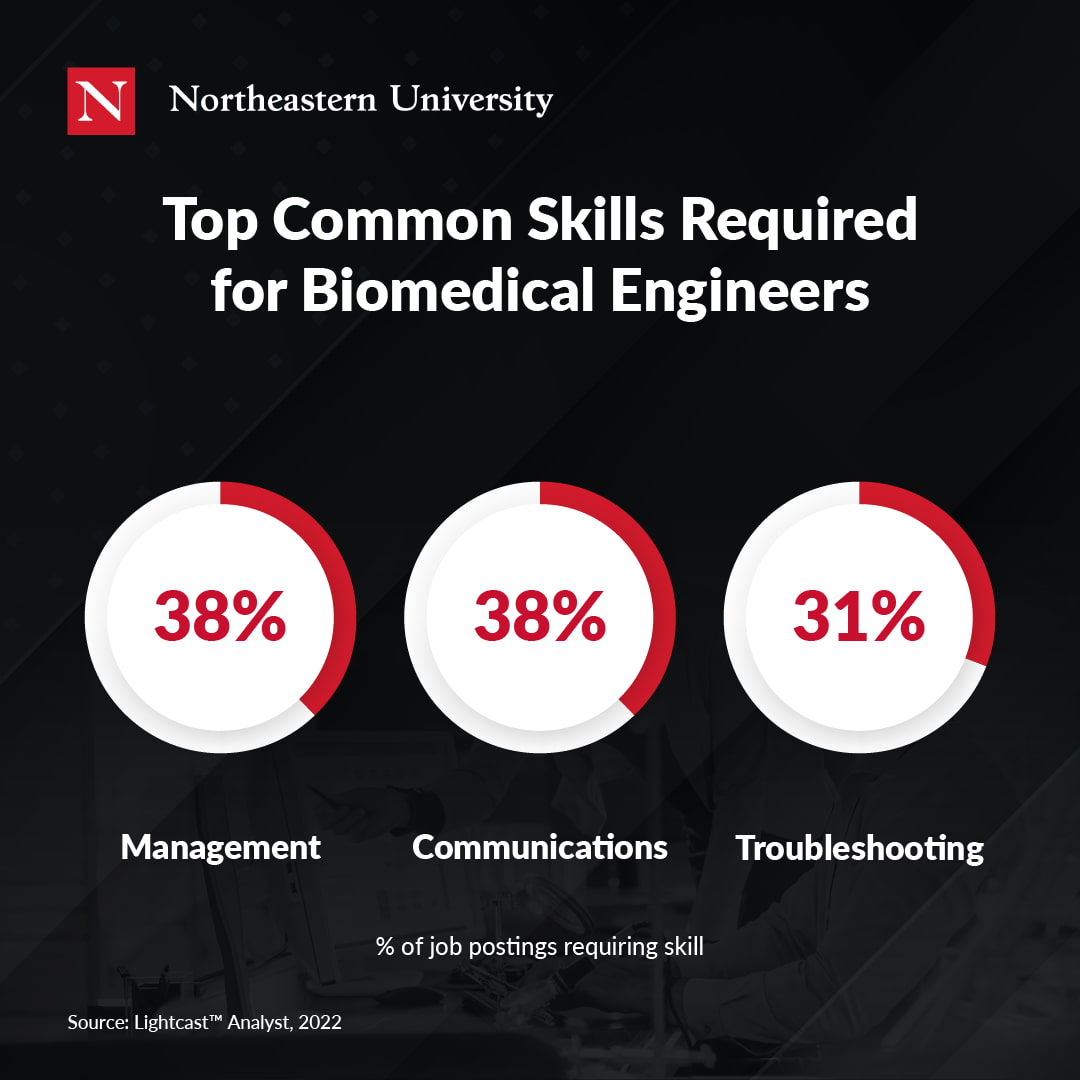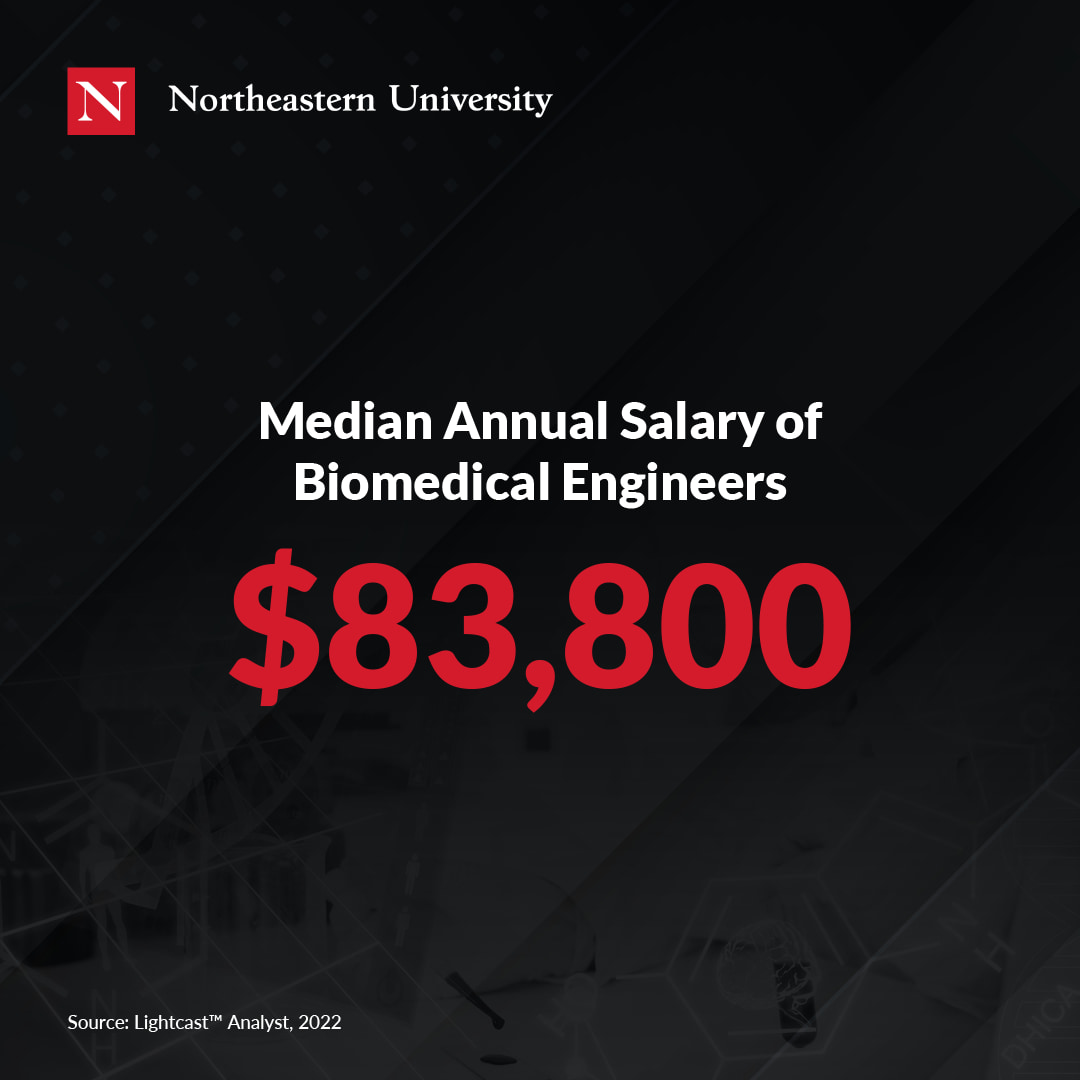Modern advances in medical technology have drastically improved the quality of care doctors are able to provide to patients. From diagnosis to treatment, biomedical devices continue to play a critical role in improving human health. Much of the credit for the development of these advanced technologies goes to biomedical engineers.
Here’s an overview of what a biomedical engineer does, how to become one, and why it’s an excellent career choice.
What Is Biomedical Engineering?
Biomedical engineering is a multidisciplinary field that applies engineering principles and techniques to biology and healthcare. It requires an in-depth understanding of life-science subjects such as biology, chemistry, and physics, as well as engineering knowledge in mathematics and design.
What Do Biomedical Engineers Do?
Biomedical engineers are tasked with a wide range of responsibilities depending on their industry. Common roles include:
- Designing medical devices: Developing medical imaging devices like MRIs, sonograms, ultrasound devices, and other medical technology
- Developing new innovations: Researching and contributing to the development of innovative medical advancements such as artificial organs, or replacement of body parts
- Collaborating with medical staff: Training other professionals on safety and the proper use of biomedical equipment, helping maintain medical devices, and troubleshooting medical equipment when necessary
- Research: Conducting statistical analysis, writing research papers, and offering valuable contributions to the overall scientific community on biomedical engineering methods and results
Biomedical engineers typically work behind the scenes and don’t have much interaction with patients. However, their work plays a critical role in patient recovery or improved quality of life. For this reason, many individuals are motivated to pursue a career as a biomedical engineer.
How to Become a Biomedical Engineer
For individuals interested in biological sciences, mathematics, engineering, and other related sub-disciplines, a position in biotechnology is the perfect career path. The steps to become a biomedical engineer are:
- Fulfill the educational requirements
- Obtain relevant experience
- Develop in-demand skills
- Obtain relevant qualifications, if required by employers
Educational Requirements
The first step to becoming a biomedical engineer is fulfilling the educational requirements of the role. Biomedical engineers typically need at least a bachelor’s in life sciences, biotechnology, or engineering. Many, however, continue their education by pursuing a graduate or doctoral degree as well. According to government data, almost 71 percent of biomedical engineers have a bachelor’s degree; of those, 42 percent also hold a master’s, and 14 percent earned a doctoral or professional degree.

Background Experience
Experience is an important aspect of any professional job posting. Many times employers want to know if applicants have been successful performing job responsibilities in other settings. According to government data, the largest percentage of experience requirements for biomedical engineer job postings is between four and six years of prior experience, comprising 31 percent of job postings. Only 18 percent of postings require one year of experience or less.
Since this industry values prior work experience, prospective biomedical engineers hoping to obtain relevant, hands-on experience, can greatly benefit from a program like the Master of Science in Biotechnology. These programs are designed specifically to prepare students for the workforce, presenting them with opportunities to collaborate with industry professionals and work with real-world projects.
In-Demand Skills
In addition to the experience and educational requirements, prospective biomedical engineers can set themselves apart from competing applicants by developing in-demand skills employers frequently look for.
Specialized Skills
Specialized, or “hard” skills, refer to job-specific skills required to achieve success in a biomedical engineering position. The top hard skills employers list on biomedical engineering job postings are:
- Biomedical Engineering
- Medical Devices
- Electrical Engineering

Common Skills
Common, or “soft” skills, are the personal attributes required for biomedical engineers to succeed in their position. These skills aren’t job-specific, but often promote success in interpersonal interactions with team members, or in rare cases, patients. The most commonly listed soft skills in job postings are:
- Management
- Communications
- Troubleshooting (Problem Solving)

Top Qualifications
On top of any specialized skills specific to the industry, some biomedical engineering positions require certain credentials and certifications. Many of these certifications are job or industry specific, so you don’t need to pursue them unless you know they’re necessary. Nevertheless, it’s good to be aware that some jobs may require these credentials. According to a government report, some of the credentials listed in biomedical engineering job postings include:
- Engineer in Training (EIT)/Professional Engineer (PE): The EIT and PE certifications demonstrate a proficiency in the engineering field. Some positions give preference to applicants with these credentials, but in most cases biomedical engineers, particularly entry-level, don’t need this certification.
- Security Clearance: Some government positions require security clearance due to the sensitive nature of the position, but it’s not a typical requirement for biomedical engineering positions.
Jared Auclair, associate dean of the Professional Program and Graduate Affairs in the College of Science at Northeastern, recommends that prospective biomedical engineers not worry about these qualifications unless employers require them. “I wouldn’t pursue [these credentials] before I had a job,” he explains. “I would wait to see what was required for me to do that job, and then I would find a way to get those credentials, post-employment.”
Why Should You Consider Biomedical Engineering?
Biomedical engineering is a challenging career, but a rewarding one. A biomedical career typically offers several benefits, including a high average salary, job growth, and opportunities to make a difference.
High Average Salary
Biomedical engineers can obtain a wide range of salaries spanning from $24,000 to $160,000, depending on seniority, education, background, and whether the role is part time or full time. However, according to government data, the median salary of biomedical engineers is approximately $83,800 per year.

A relevant master’s degree can increase your earning potential. According to Auclair, “With a master’s degree, you can advance quickly and pretty far in a company, and the jobs pay pretty well.”
Additional data confirms that job postings requiring a master’s degree advertise a salary approximately 14 percent higher than those requiring a bachelor’s. Master’s-level biomedical engineers earn a median annual salary of nearly $95,000. Conversely, postings that require a bachelor’s degree advertise a median salary of $83,300 per year, and of those postings, 60 percent still prefer graduate-level applicants.
Growth Opportunities
Biomedical engineering is one of the most in-demand careers in the biotechnology industry. In terms of job opportunities, biomedical engineers have many choices. The healthcare industry offers a wide range of jobs for prospective biomedical engineers, including working in medical imaging, pharmaceuticals, neural engineering, mechanical engineering, and a variety of other options. Biomedical engineers can also advance their careers to management positions.
Make a Meaningful Difference
Healthcare professionals who take more of a hands-on role in patient care often receive the credit for patient recovery. While this credit is definitely well-deserved, they wouldn’t be able to provide the same quality of care without the work of biomedical engineers. The reality is that although biomedical engineers operate behind the scenes, they play an essential role in the healthcare industry.
One of biomedical engineers’ primary objectives is to improve patients’ quality of life by applying their engineering problem-solving skills to the medical field. They’re able to make a meaningful difference in others’ lives by increasing the efficiency of medical procedures through innovative technologies, or easing the diagnosis process for medical professionals by improving diagnostic technology. Individuals who are motivated to improve others’ quality of life will likely find biotechnology a rewarding career.
Take the Next Step Toward a Meaningful Career
For many, biomedical engineering is an appealing career. However, the educational requirements for higher-paying positions can be daunting. Auclair assures prospective students that pursuing an advanced degree in biotechnology is “definitely worth the investment, especially in the experiential master’s space.”
If you’re interested in developing the skills required to succeed in the biotechnology industry, consider applying for Northeastern’s Master of Science in Biotechnology program to expedite your biomedical engineering career and obtain valuable, real-world experience and in-demand skills.






Related Articles
11 Data Science Careers Shaping Our Future
How Data Science is Disrupting Supply Chain Management
What Does a Data Scientist Do?